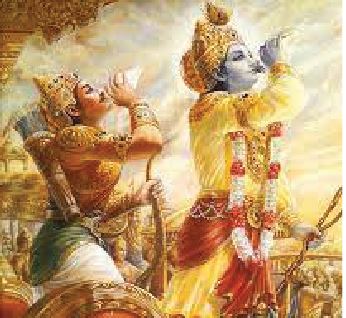
The word “Duty” in English language was derived from the French word deu (due) around 13th Century to signify repayment of obligations. In Sanskrit the word “duty” is denoted by “Dharma.” Dharma is one of the purposes of life according to Vedas in Hinduism. Dharma is the performance of actions in an ethical manner. According to the translation of Bhagvad Gita by the International Society of Krishna Consciousness the word duty appears at least 30 times in it. Likewise, Islam and Christianity also talk about duty. Similarly in Sikhism, one pillar of life is Kirat Karni – which means working and earning through hard work and living a family way of life by practicing truthfulness and honesty in all dealings. Dharma is also an important doctrine in Buddhism. In contemporary times, an Indian philosopher, Sri G.V. Vethathiri (1911-2006) has popularized the term “duty consciousness’ through his writings and the work of the World Community Service Centre.
What is duty consciousness? All of us are born as helpless newborns in this world unable to survive for a few hours if left uncared for. Usually, it is our parents who rear us but if for some reason we do not have our biological parents, society in one form or the other takes care of us until a point in time when we become capable of earning a livelihood. Further, throughout our life we are dependent on the labor of members of the society who grow food for us, bring the food to our table, who produce clothes that we wear, build shelter for us and so on. So, all this needs to be considered as an unwritten debt or an obligation that needs to be paid back. The understanding and application of this principle in our thoughts, words and deeds is duty consciousness.
Hence, in duty consciousness we should perform our actions with love toward the upkeep of our body so that we can serve others. We should perform duty toward our mind so that we can use wisdom in our actions and make them ethical. We should perform our duty toward our family so that there is harmony around us. We should perform our duty toward society with whatever capabilities we have without the intent of not harming anyone at present or in the future. An important aspect of duty consciousness can be appreciated from a commonly cited Bhagvad Gita verse (2.47):
Karmany evaddhikaras te
Ma phaelsu kadaccan
Ma karma-phala-hetur bhur
Ma te sango stv akarmani
In simple terms this means that one should never neglect one’s duties and perform those without attachment to the outcomes. It is very important to perform our duties. We should strive to make the world a better place to live in for us, our children, and future generations to come but not be overly concerned about the outcomes as to whether those are accruing or not.
If we do not perform our duties well then nature has a very effective means to check it. For example, if one keeps on accumulating wealth without repayment of societal debt, they have to eventually leave everything behind after their death. During their life, they may have sacrificed their health for accumulating this wealth, they may have worried about its loss, they may have used unethical means and faced consequences, they may not have been able to enjoy the peace of mind that comes with having just enough and so on. In this example, if the person used ethical means to accumulate wealth and channelized it for the welfare of those in need after reaching his or her goals then peace and harmony would have been a byproduct. This latter approach would be an example of duty consciousness.
In a world that is so focused on rights what does duty consciousness mean. We talk about human rights, we talk about rights regarding education, we talk about rights about health, we talk about rights regarding employment, we talk about their violation, we talk about fighting for them, and so on. The lives of many so-called activists revolve around upholding these rights. The conceptualization of duty consciousness reverses this paradigm. While the demanding of rights blames others and expects others to do the job, duty consciousness places the responsibility on each person that “I will do it.” Each one of us after attaining a certain age has the capability to contribute toward the welfare of self, family, and society. Barring a few exceptions, most of us have these capabilities with varying levels of skill sets. For those such as people with severe disabilities or the old, society must make provisions. Other than that, everyone has the responsibility to do their share of duties. If each one does their duty correctly then there is no question for anyone to ask for rights. If a husband takes care of his wife through his duties and the wife takes care of the husband through her duties where is the disharmony or clamor for rights? If an employer takes care of their employee by performing their duties and the employee does their duty by taking care of the job diligently then where is the question for rights? This can be practiced in each sphere of life. However, it must begin with each individual. Drop by drop the ocean is created. All of us on the path of spirituality must perform our duties with commitment.
To sum up, we must not shy away from doing our duties with fervor. We must take self-responsibility as far as possible for satisfying our needs, our family’s needs and then diverting the rest of the efforts for the betterment of society. Each one should not underestimate their potential and power in alleviating the functioning of humankind while being on the spiritual path through duty consciousness.
Dr. Manoj Sharma is a Professor and Chair of the Department of Social and Behavioral Health at the University of Nevada, Las Vegas, USA. He is an avid practitioner of Kundalini Yoga.